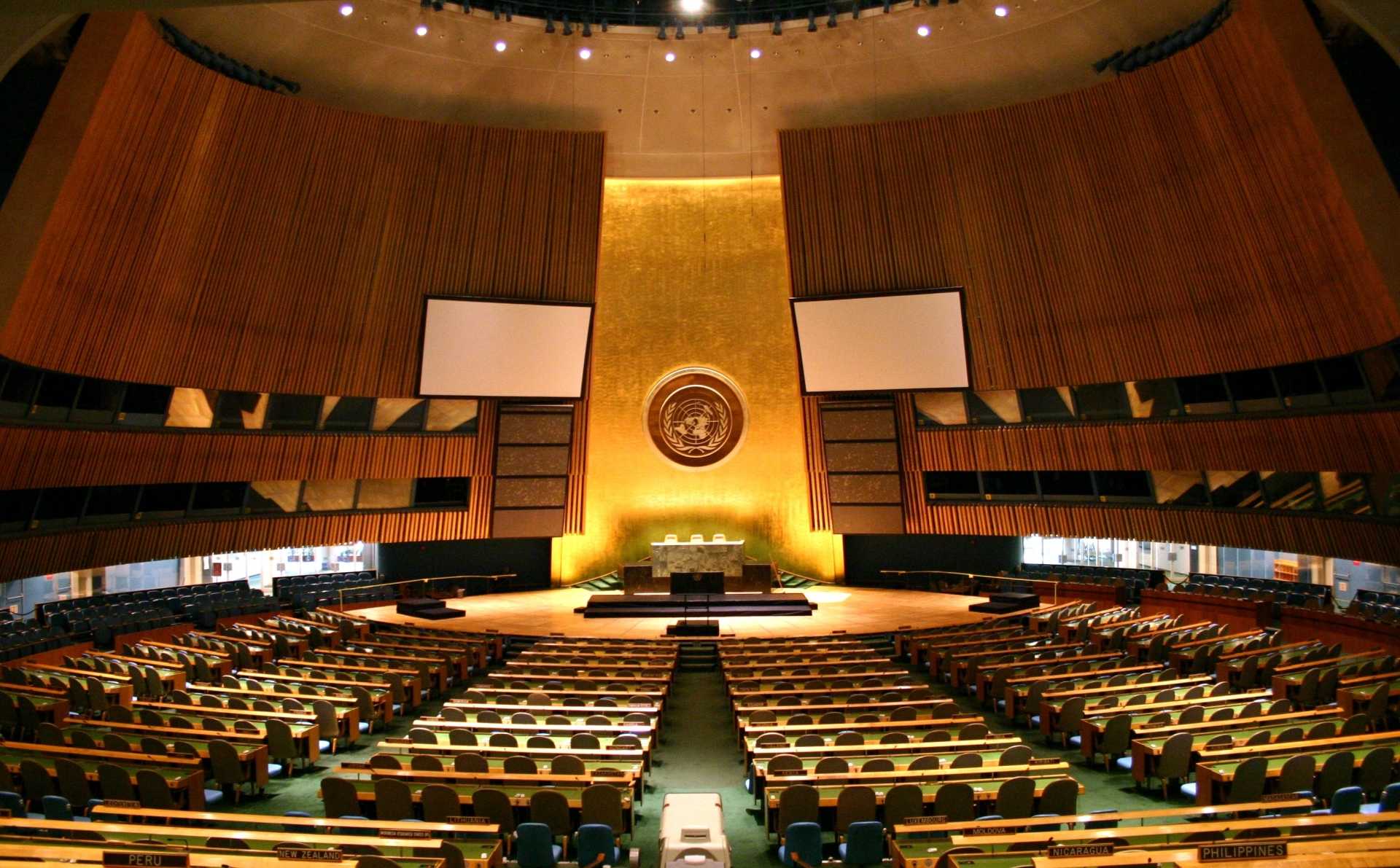



The United Nations General Assembly (UNGA or GA; French: Assemblée générale, AG) is one of the six principal organs of the United Nations (UN), the only one in which all member nations have equal representation, and the main deliberative, policy-making, and representative organ of the UN. Its powers are to oversee the budget of the UN, appoint the non-permanent members to the Security Council, appoint the Secretary-General of the United Nations, receive reports from other parts of the UN, and make recommendations in the form of General Assembly Resolutions. It has also established numerous subsidiary organs.
The General Assembly currently meets under its president or secretary-general in annual sessions at the headquarters of the United Nations in New York City, the main part of which lasts from September to December and part of January until all issues are addressed (which often is just before the next session's start). It can also reconvene for special and emergency special sessions. Its composition, functions, powers, voting, and procedures are set out in Chapter IV of the United Nations Charter. The first session was convened on 10 January 1946 in the Methodist Central Hall in London and included representatives of 51 nations.
Voting in the General Assembly on certain important questions, namely, recommendations on peace and security, budgetary concerns, and the election, admission, suspension or expulsion of members is by a two-thirds majority of those present and voting. Other questions are decided by a straightforward majority. Each member country has one vote. Apart from approval of budgetary matters, including adoption of a scale of assessment, Assembly resolutions are not binding on the members. The Assembly may make recommendations on any matters within the scope of the UN, except matters of peace and security under Security Council consideration.
The one state, one vote power structure potentially allows states comprising just five percent of the world population to pass a resolution by a two-thirds vote.
During the 1980s, the Assembly became a forum for the "North-South dialogue:" the discussion of issues between industrialized nations and developing countries. These issues came to the fore because of the phenomenal growth and changing makeup of the UN membership. In 1945, the UN had 51 members. It now has 193, of which more than two-thirds are developing countries. Because of their numbers, developing countries are often able to determine the agenda of the Assembly (using coordinating groups like the G77), the character of its debates, and the nature of its decisions. For many developing countries, the UN is the source of much of their diplomatic influence and the principal outlet for their foreign relations initiatives.
Although the resolutions passed by the General Assembly do not have the binding forces over the member nations (apart from budgetary measures), pursuant to its Uniting for Peace resolution of November 1950 (resolution 377 (V)), the Assembly may also take action if the Security Council fails to act, owing to the negative vote of a permanent member, in a case where there appears to be a threat to the peace, breach of the peace or act of aggression. The Assembly can consider the matter immediately with a view to making recommendations to Members for collective measures to maintain or restore international peace and security.

United Nations (UN) General Assembly hall at the UN Headquarters, New York City
